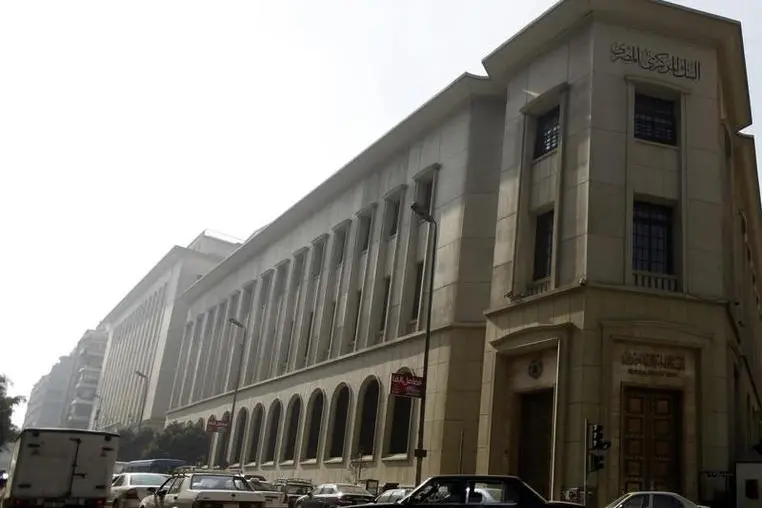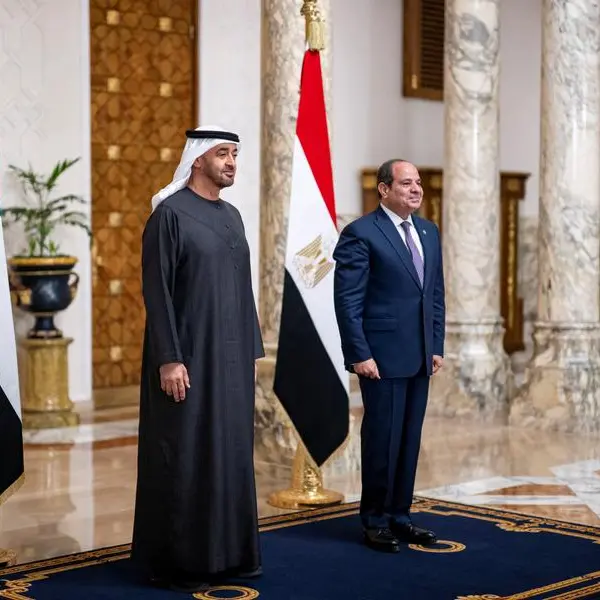PHOTO
The Monetary Policy Committee (MPC) of the Central Bank of Egypt (CBE) will hold its fourth periodic meeting during the current year on Thursday to discuss the fate of the basic interest rates, which are the most important indicator of the direction of interest rates on the Egyptian pound in the short term.
The committee had decided in its previous meeting on 18 May, to keep the basic interest rates with the Central Bank at 18.25% for deposits, 19.25% for lending, and 18.75% for the credit and discount rate and the price of the main operation with the Central Bank, which is the level reached by those rates in 30 March, after raising it 2% at once.
Mohamed Abdel-Aal, a well-known banking expert, said: “Some expectations are directed towards the possibility of raising interest rates on the part of the Monetary Policy Committee of the Central Bank of Egypt at its meeting tomorrow, Thursday, but in my opinion, the Egyptian inflation rate has currently lost the feature of interacting with interest-raising trends. Following a long period of monetary tightening over a period of fifteen months, during which interest rates were raised by 10%, and despite this, the inflation rate did not shrink, and it is still far from its target of 7% (±2%) by the end of 2024.”
He added: “This does not mean that monetary policy has gone wrong during the past period, the opposite is true, because the policy of raising interest in the past era was an inevitable necessity, and it succeeded in being a flexible policy on both sides of absorbing liquidity, and reducing the size of its elements within reasonable limits, which led to a lack of liquidity available for spending, and thus reduced the demand side, and on the other hand allowed banks to issue savings certificates at exceptional interest rates, to compensate the savings of the family sector relatively for the high rates of inflation.”
According to Abdel Aal, the policy of raising the interest rate has its weaknesses.
He said that addressing the causes of inflation now should not depend on interest-raising mechanisms only, as we find that the exchange rate in our current circumstances is the one with the greatest, direct and mutual influence on inflation rates, and that addressing the causes of current pressures on the exchange rate and stopping its continuation and recurrence of the devaluations of the Egyptian pound against the dollar is one of the most important keys to containing its current high rates.
Abdel Aal stressed that in order for the domestic interest rate hike tool to succeed in containing inflation, it is necessary to strive first to achieve the stability of the exchange rate.
“Our conditions and problems in Egypt are different from the conditions and problems of other countries that fight inflation by raising interest rates,” according to Abdel Aal.
He stressed that focusing on the policy of raising interest rates more than it is now, may not work at the macroeconomic level, in both its monetary and financial aspects.
He added: “In my opinion, the Monetary Policy Committee, in its next meeting, may see that fixing interest rates is the best solution at the current stage.”
High input prices and weak demand
Moreover, the Research Department of HC Securities and Investment issued its expectations regarding the possible decision of the MPC regarding interest rates, in light of the current situation in Egypt, as it expected that the committee would fix the interest rate in its meeting on Thursday.
Heba Mounir, a macroeconomic analyst at HC, said that the Monetary Policy Committee is expected to keep interest rates on deposits and overnight lending unchanged, despite the recent increase of 2.72% in inflation on a monthly basis in May, citing high input prices and weak demand, the need for the government to keep the domestic debt service under control, and the decline in credit risk swaps for one year, which led to a decrease in the expected return required by investors for a period of 12 months on Egyptian treasury bills.
She continued: “Despite the delay in the issuance of the review of the International Monetary Fund programme and the disbursement of the supportive loan tranche, the one-year CDS index has declined significantly to 1.221 now from its high level of 2.510 in mid-May, which led to a decline in the expected 12-year treasury bills yield per month by 200 basis points compared to the previous month, based on our calculations.”
Radwa El-Swaify, head of the research department at Al-Ahly Pharos, expected that the central bank would keep interest rates unchanged at the Monetary Policy Committee meeting tomorrow, Thursday.
El-Swaify attributed this to the fact that the next round of currency devaluation has been suspended for the time being, and the global monetary tightening by the US Federal Reserve is expected to end.
She explained that the inflation rate has already peaked and will stabilize by the fourth quarter of 2023.
A Reuters poll predicted that the Central Bank of Egypt would not change interest rates on Thursday.
The average expectation in the poll, which included 17 analysts, was that the bank would maintain the interest rate on deposits at 18.25%, and the lending rate at 19.25%, and none of the analysts expected a change in interest rates.
“The government is keen to keep the currency steady for the time being, which removes any possible reason to raise interest rates,” said analyst Noman Khaled of the National Bank of Kuwait.
“We expect the central bank to keep interest rates unchanged, given the expectation that foreign currency liquidity will improve in the short term, and the possibility of another move in the value of the pound will decrease,” said Pascal Defoe, of BNP Paribas.
The Central Bank recently revealed that the annual core inflation rate had risen to 40.3% in May 2023, compared to 38.6% in the previous April.
The Central Bank explained that the basic consumer price index, prepared for its part, recorded a monthly rate of 2.9% in May 2023, compared to 1.6% in May 2022, and 1.7% in April 2023.
The Central Agency for Public Mobilization and Statistics had revealed that the annual inflation rate in Egyptian cities had increased to 32.7% in May 2023, compared to 30.6% in the previous April.
The agency indicated that on a monthly basis, the urban inflation rate increased to 2.7% in May, compared to 1.7% in April.
The agency indicated that the annual inflation rate for the entire republic was 33.7% in May 2023, compared to 31.5% in the previous April, and 15.3% in May 2022.
The Central Bank of Egypt confirmed earlier that its Monetary Policy Committee will continue to assess the impact of the restrictive monetary policy that was taken, specifically raising interest rates by 10% since March 2022 and raising the compulsory cash reserve ratio by 4% in September 2022, to contain pressures. Inflationary data according to the economic data received during the coming period.
The Central Bank affirmed that the path of basic interest rates depends on expected inflation rates and not the prevailing inflation rates, and that maintaining restrictive monetary conditions is a prerequisite for achieving the target inflation rates of 7% ± 2% on average during the fourth quarter of 2024 and 5% ± 2% on average during the fourth quarter of 2026.
It indicated that the Monetary Policy Committee will closely follow the risks surrounding inflation that may result from supply chain disruptions as well as geopolitical tensions and other factors, and will follow all economic developments, and will not hesitate to adjust its policy in order to achieve the goal of price stability.
© 2022 Daily News Egypt. Provided by SyndiGate Media Inc. (Syndigate.info).





















